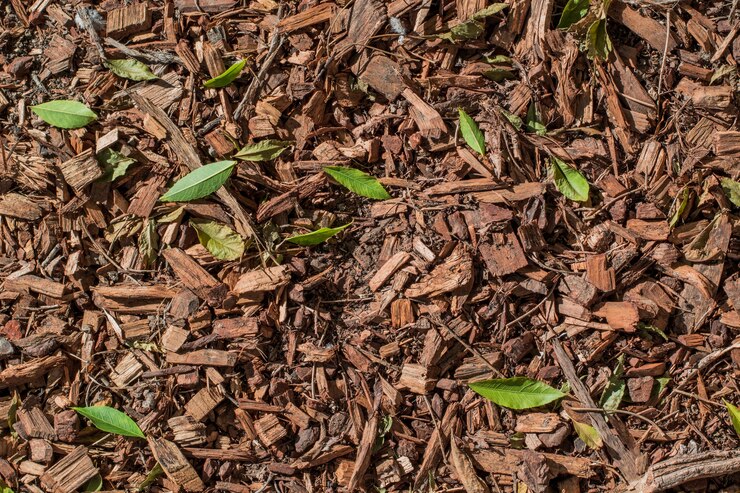Cedar mulch is a popular choice among gardeners and landscapers for its many benefits, including its aesthetic appeal, natural aroma, and ability to improve soil health. This organic mulch, derived from cedar trees, offers a variety of advantages that go beyond just adding a finishing touch to your garden beds. In this article, we’ll explore the benefits of cedar mulch, how it can be used in different settings, and answer some frequently asked questions.
What is Cedar Mulch?
Cedar mulch is a type of organic mulch made from the bark and wood of cedar trees. This mulch comes in various forms, such as shredded pieces, chips, or nuggets, and can vary in color from reddish-brown to yellowish hues. Cedar is known for its aromatic properties and slow decomposition, which sets it apart from other types of mulch.
Benefits of Cedar Mulch
1. Natural Pest Repellent
Cedar contains natural oils, such as thujone, that act as a natural insect repellent. The scent of these oils deters many pests, including ants, termites, moths, and even mosquitoes. This makes cedar mulch an excellent option for reducing pest activity in your garden.
2. Moisture Retention
One of the key benefits of using cedar mulch is its ability to retain moisture in the soil. By covering the ground, it helps prevent water evaporation, keeping the soil moist for longer periods. This can reduce the need for frequent watering, particularly during hot summer months.
3. Weed Suppression
Cedar mulch helps to suppress weed growth by blocking sunlight from reaching the soil. This limits the germination and growth of weeds, reducing the competition for nutrients and water in your garden.
4. Temperature Regulation
Cedar mulch acts as an insulator for the soil. In the summer, it helps keep the soil cool by shading it from direct sunlight. In colder months, it serves as a protective barrier, preventing the soil from freezing too quickly.
5. Aesthetic Appeal
With its rich, earthy tones and pleasant fragrance, cedar mulch enhances the visual appeal of garden beds and landscapes. It gives a neat and polished look to flower beds, pathways, and around trees, creating a natural and well-maintained appearance.
6. Longevity
Cedar mulch decomposes more slowly than other organic mulches, such as pine or hardwood mulch. This means it lasts longer and requires less frequent replenishment, saving both time and money in the long run.
How to Use Cedar Mulch in the Garden
1. Around Trees and Shrubs
Cedar mulch is ideal for spreading around the base of trees and shrubs. Be sure to keep the mulch a few inches away from the trunk to prevent moisture buildup, which can lead to rot.
2. In Flower Beds
Use a layer of 2-3 inches of cedar mulch in flower beds to help suppress weeds and retain moisture. The mulch also creates a visually appealing contrast with the colors of flowers and foliage.
3. For Vegetable Gardens
While cedarmulch can be beneficial in vegetable gardens, it’s essential to use it correctly. Since cedar has natural oils that deter pests, it’s great for garden edges but may need to be used sparingly near sensitive plants. Applying a layer of 1-2 inches around the base of plants can help improve moisture retention and prevent weeds.
4. On Garden Pathways
Cedar mulch is a practical option for creating attractive, low-maintenance garden pathways. It provides a soft, natural surface that is comfortable to walk on, while its pest-repellent properties help keep the paths clear of unwanted insects.
Cedar Mulch: Pros and Cons
Pros:
- Natural Pest Repellent
Cedar mulch contains natural oils, such as thujone, which repel many common garden pests like ants, termites, moths, and mosquitoes. - Long-Lasting
Cedar mulch decomposes slowly compared to other organic mulches. It can last 2-3 years, reducing the need for frequent replenishment. - Moisture Retention
It helps retain moisture in the soil by reducing evaporation, which can be especially helpful during hot weather. - Weed Suppression
By blocking sunlight from reaching the soil, cedarmulch helps suppress weed growth, minimizing competition for nutrients and water. - Temperature Regulation
Cedar mulch acts as an insulator, keeping the soil cooler in summer and warmer in winter, protecting plant roots from temperature extremes. - Aesthetic Appeal
Ceda mulch has a pleasant aroma and comes in natural shades that enhance the look of garden beds, pathways, and landscapes.
Cons:
- Cost
Cedar mulch is often more expensive than other types of mulch, such as pine or hardwood, due to its durability and pest-repellent properties. - Potential for Soil Acidity
While cedar mulch is only slightly acidic, it can affect the pH of the soil over time, especially in large quantities. This may not be ideal for plants that prefer neutral or alkaline soil. - Possible Impact on Plants
Some sensitive plants may react to the natural oils in ceda mulch, which can slow down their growth if applied too thickly around their base. - Not Ideal for All Vegetable Gardens
Although cedar mulch is great for repelling pests, its strong oils may not be suitable for certain delicate vegetables, especially if applied too close to the plants. - Can Be Heavy
Cedarmulch, especially in chip or nugget form, can be heavy, making it more difficult to spread and move compared to lighter mulch materials.
Conclusion
Cedarmulch is a versatile and beneficial addition to any garden or landscape. Its pest-repelling properties, moisture retention, and aesthetic appeal make it a great choice for homeowners and gardeners looking to enhance the health and beauty of their outdoor spaces. Whether you’re mulching flower beds, trees, or garden pathways, cedarmulch provides long-lasting benefits that will keep your garden thriving.
By understanding the advantages and best uses for cedarmulch, you can ensure that your plants and soil get the care they need while adding an appealing finishing touch to your landscaping projects.
Frequently Asked Questions (FAQs)
1. How long does cedar mulch last?
Cedar mulch can last for 2-3 years before needing to be replenished. Its slow decomposition rate makes it one of the longest-lasting types of organic mulch.
2. Does cedarmulch attract or repel insects?
Cedar mulch repels many common pests, including ants, termites, and mosquitoes, due to the natural oils it contains. However, it can attract beneficial insects like earthworms that improve soil health.
3. Can cedarmulch be used in vegetable gardens?
Yes, cedarmulch can be used in vegetable gardens, but it should be applied carefully. Use it around the edges or in pathways, and avoid placing it directly around sensitive plants that may be affected by its natural oils.
4. How thick should I apply cedarmulch?
For most applications, a 2-3 inch layer of cedarmulch is ideal. Thinner layers may not provide sufficient weed suppression or moisture retention, while thicker layers could trap too much moisture and cause plant issues.
5. Does cedarmulch affect soil pH?
Cedarmulch is slightly acidic, but it generally does not significantly alter the pH of the soil. It can be safely used around most plants without affecting their growth.
6. How often should I replace cedar mulch?
Cedar mulch typically needs to be replenished every 2-3 years, depending on the rate of decomposition and the environment. It may also need occasional fluffing to maintain its appearance and effectiveness.











